june-top.html
1798 The Battle of Arklow took place on this day in 1798. It was another conflict led by the rebel group, the United Irishmen as they tried to break free from British rule.
Arklow was the rebels next chosen destination, as they looked to spread the rebellion from Wexford. The rebels were from Wexford and Wicklow, and were led by Billy Byrne, Anthony Perry, Conor McEvoy, Edward Fitzgerald and Father Murphy. The British had sent 1,700 soldiers to defend the town and stop the rebellion from gathering any more momentum.
The rebels approached the town from all angles under the cover of the wild shrubbery. The plan was to attack the town simultaneously from various points, to overwhelm the British defences. However, every rebel attack was repelled by the British soldiers, with cannon and musket fire, and a disciplined defence of their position.
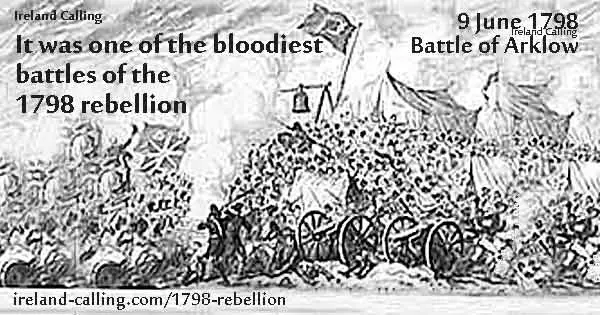
The rebels continued to charge at the town, with pikes and spears, but were suffering heavy losses without making any ground. As the day wore on, the rebels lost some of their leaders and the spirit amongst the men was badly affected. As darkness fell, the rebels gave up and retreated, not knowing that the British were virtually out of ammunition and on the verge of defeat.
Of the 10,000 United Irishmen who took part in the battle, it is estimated that more than 1,000 were killed. Of the 1,700 British soldiers, about 100 were lost.
It was one of the bloodiest battles of the 1798 rebellion.
Disccover more about the 1798 Rebellion
* * *
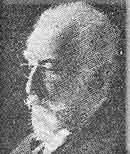 1850 Pierce Charles de Lacy O’Mahony was born in Dublin on this day in 1850. He was a politician who campaigned for Irish Home Rule in the late 19th and early 20th century.
1850 Pierce Charles de Lacy O’Mahony was born in Dublin on this day in 1850. He was a politician who campaigned for Irish Home Rule in the late 19th and early 20th century.
O’Mahony was a supporter of Charles Parnell, and was one of the few Irish Protestant politicians who stood by him, after his affair with Kitty O’Shea was exposed. After Parnell’s death, O’Mahony lost his seat in parliament. He failed to get re-elected on numerous occasions, with the Catholic Church using its power to discourage voters from allowing the Protestant O’Mahony back into parliament.
With his political career all but over, O’Mahony turned his attention to humanitarian work. He travelled to Bulgaria to set up an orphanage for children fleeing massacres in Turkey. He also tried to prevent Bulgaria forming an alliance with Germany before the outbreak of the First World War.
O’Mahony was still well involved with issues in Ireland. He was a supporter of the Dublin Lockout, when the dock workers went on strike in protest to poor pay and dangerous working conditions. O’Mahony also campaigned against the British government’s hostile military action during the Irish War of Independence.
O’Mahony died in 1929 of natural causes.
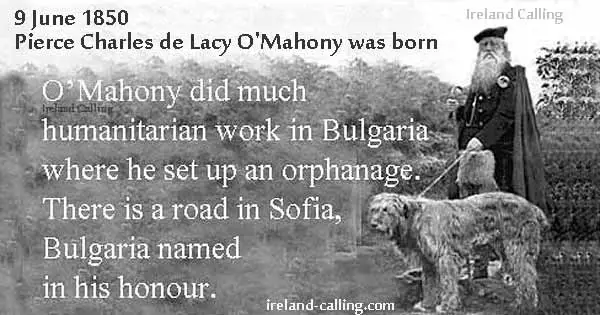
* * *
1882 Robert Kerr was born in Enniskillen, Northern Ireland on this day in 1882. He moved to Canada with his family as a child and grew up to become a fireman. Kerr kept himself fit by running in his spare time and qualified to represent Canada at the 1904 St Louis Olympics. However, he failed to qualify for the finals of any of his events.
Undeterred, Kerr continued to train for the next four years and again qualified to go to the Olympics, this time in London. The British crowd supported Kerr as one of their own, given his Northern Irish birth, and he won a bronze medal in the 100m with a time of 11.0 seconds.
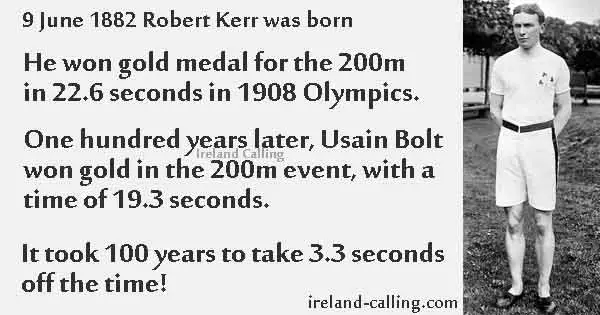
The following day, Kerr won a gold medal in the 200m event, with a time of 22.6 seconds. One hundred years later, Usain Bolt won gold in the 200m event, with a time of 19.3 seconds in Beijing, China.
After Kerr retired from competitive athletics, he became a coach in his hometown. He also worked as an official at the 1928 and 1932 Olympic Games.
Click here to read about more top Irish sports stars
* * *
1953 On this day in 1953, Dublin cinema owners unanimously decided not to screen Queen Elizabeth’s coronation.
There was a fear that Irish nationalists may cause damage to the theatres. Ireland had been independent from British rule for a little over thirty years, but there was still large groups who held resentment to the British and what they saw as unfair treatment of their forefathers.
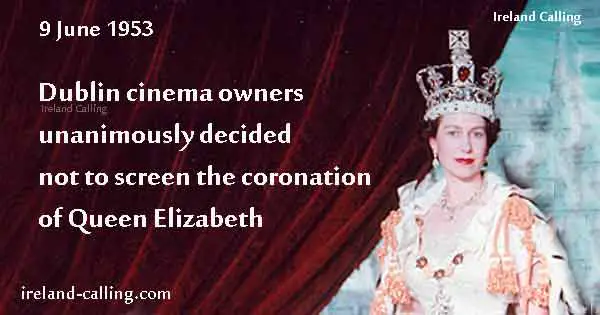
* * *
1989 Happy birthday to Chloë Agnew born in Dublin on this day in 1989. She is a musician and singer, most notably as a former member of the Irish girl group Celtic Woman. Both Agnew’s parents were musicians, and she made her first big performance aged just six when she sang on her mother’s television programme.
Click here to read more about Chloë Agnew
Click here to read more about Celtic Woman
Click here to read about more Irish singers
Click here to read about more Irish bands
A compilation video of Chloë Agnew.
* * *
2004 On this day in 2004, a replica of the famine ship, the Jeanie Johnston, began a four month voyage around Ireland. The original Jeanie Johnston was used to transport Irish emigrants to America during the mid-19th century, when the ‘Great Famine’ forced thousands to leave Ireland.
It made 16 trips from Ireland to America, carrying hundreds of passengers at a time. On average, the voyage lasted 47 days, and in all its trips, no-one ever died on board the ship. This record is credited to the Captain, James Attridge, for his knowledge of the ocean and his priority of passenger safety.
The ship cost €15m to build, and is now only worth €700,000. It costs €240,000 a year to maintain as a tourist attraction. It had 20,000 visitors in 2014 – the entrance fee raised only €140,000.
The replica was built as a tourist attraction and venue for corporate entertainment. It can be found docked at Custom House Quay in Dublin city centre.
Click here to read about more tourist attractions in Dublin
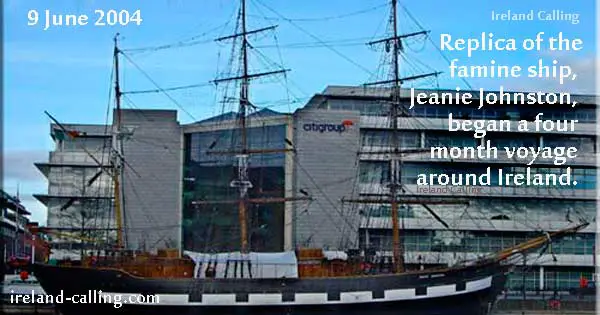
june-bottom.html